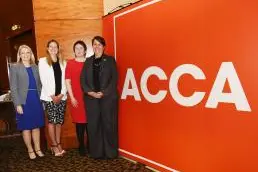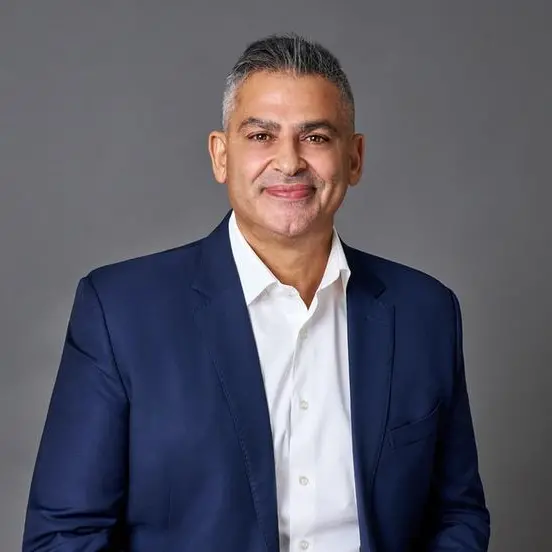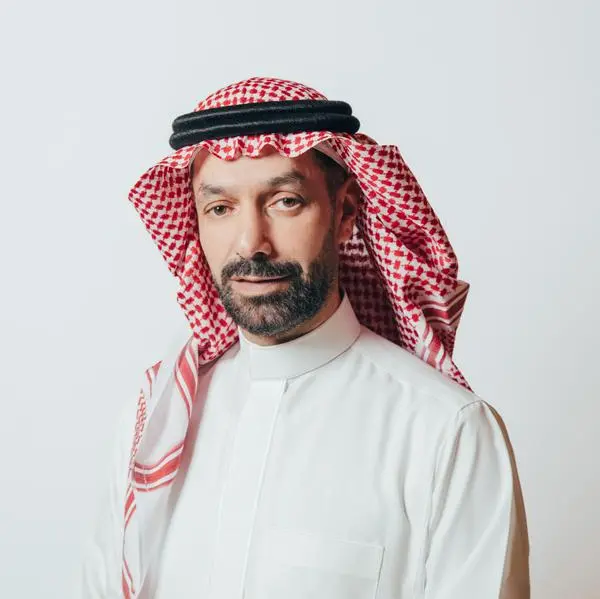PHOTO
Building a better business through diversity management
Dubai, UAE, 21 January 2015
ACCA (the Association of Chartered Certified Accountants) held the latest in its series of Women in Finance roundtables, supported by Pearl Initiative, focusing on the benefit to organisations of greater diversity in the workplace. A forum of senior women in financial roles from leading firms including Deloitte, PWC, Ernst & Young, Pepsi Cola International Ltd., and Shell, explored how diversity can be fostered, highlighting the importance finance functions can play in making organisations more diverse.
In today's evolving and challenging financial function, diversity means much more than equal opportunities and goes much further than gender, ethnicity or social equality. It is also about diversity in the ideas, skills and capabilities that people from all ranges of backgrounds, experiences, ages, geographies and cultures can bring to the finance function. Companies may have teams that look different, which is good for the CSR reports, but the more important factor is to have a team which is going to think and work differently too. When expanding overseas, new markets bring their own customs, culture, regulatory environment and governance standards, which need to be considered and integrated into existing corporate models. Finance leaders need to strike the right balance between a company drive for international standardisation and diversity of local market experience and knowledge.
Helen Brand, Chief Executive of ACCA, where 62.8% of employees are women, commented: "ACCA is committed to diversity and indeed it is one of our treasured values. The ACCA Women in Finance initiative in the UAE has provided a platform for likeminded women to share their successes and challenges in their careers, which provide valuable insights from embracing the diversity that comes from operating across geographies and cultures. The hope is that this practical advice will translate in an action plan for diversity, which should not just focus on the bottom line, but also account for shareholder and stakeholder value, the regulatory context and the global value chain for the company's operations in the Middle East."
Looking at the gender divide, the UAE's vision 2030 noted that: "encouraging more National women into the workforce will give a boost to the economy, making better use of the UAE's human resources and reducing reliance on expatriate labour, as well as giving women the opportunity to shape the direction of the UAE's economic development." The UAE is ahead of the curve in terms of fostering equal opportunities for men and women; it is the first Arab country and the second country globally to introduce mandatory quotas for females in boardrooms of government agencies. Presently, women account for 16 per cent of the workforce in UAE government departments while 70 per cent of country's college graduates are females.
Imelda Dunlop, Executive Director of the Pearl Initiative, the leading private sector not-for-profit institution working to improve corporate governance and accountability in the region commented: "Effective board composition is a driver for good governance and having more women on boards of organisations in the GCC is a key aspect of this. The Pearl Initiative recently conducted a ground-breaking research with Sharjah Businesswomen Council (SBWC) and the United Nations Global Compact entitled "Women's Careers in the GCC - The CEO Agenda" aiming to inform business leaders on practical programmes to attract, retain and develop more women into senior positions in the Gulf Region, and thereby create a larger pool of board-ready women. The full outcome will be published in the coming few months"
The initial findings revealed today showed that the majority of women are ambitious and aspiring to reach senior positions, and that financial reward is not a key driver, rather recognition, self-fulfilment and a work-life-balance. A poll was also held at the event and out of the 25 participants, the majority strongly believed that finance function can play an important role in the business case for diversity management, the 'tone at the top' plays a crucial role in achieving senior levels of gender equality and that target quotas for women should be introduced. In order to succeed in today's complex and dynamic business environment, and for finance functions to be truly successful, a diversity of skills, experience and perspectives are imperative, therefore recruiting from a broader pool of talent of both genders is required to create a more varied finance workforce pipeline. It's no longer the corporate career ladder, but the corporate career lattice.
- Ends -
For further information:
Laura Westmacott
Bianca Riley
Samar Saliba TOH Public Relations
04 382 8900
firstname@tohpr.com www.tohpr.com
The roundtable was chaired by Cynthia Corby FCCA, member of ACCA's MAC and partner at Deloitte. The event was attended by: Deloitte, Pepsi Cola International Ltd., Pearl Initiative, PWC, E&Y, Investment Corporation of Dubai, Department of Finance - Fujairah Government, Shell Iraq Petroleum Development, Lazard Asset Management, Kompass consultancy
ACCA:
1. ACCA (the Association of Chartered Certified Accountants) is the global body for professional accountants. We offer business-relevant, first-choice qualifications to people of application, ability and ambition around the world who seek a rewarding career in accountancy, finance and management.
2. We support our 170,000 members and 436,000 students in 180 countries, helping them to develop successful careers in accounting and business, with the skills required by employers. We work through a network of over 91 offices and centres and more than 8,500 Approved Employers worldwide, who provide high standards of employee learning and development. Through our public interest remit, we promote appropriate regulation of accounting and conduct relevant research to ensure accountancy continues to grow in reputation and influence.
3. Founded in 1904, ACCA has consistently held unique core values: opportunity, diversity, innovation, integrity and accountability. We believe that accountants bring value to economies in all stages of development and seek to develop capacity in the profession and encourage the adoption of global standards. Our values are aligned to the needs of employers in all sectors and we ensure that through our qualifications, we prepare accountants for business. We seek to open up the profession to people of all backgrounds and remove artificial barriers, innovating our qualifications and delivery to meet the diverse needs of trainee professionals and their employers.
About the Pearl Initiative Women in Leadership Programme:
The Pearl Initiative, in partnership with the Sharjah Businesswomen Council (SBWC) and the United Nations Global Compact, is leading a ground-breaking programme to carry out a research on women's careers in the Gulf Region. The aim of this programme is to inform business leaders on practical approaches to attract, retain and develop more women into senior positions in the Gulf Region, and thereby create a larger pool of Board-ready women. The research part of the programme consists of an extensive survey of women in senior management in the GCC complemented by a series of focus groups held around the region. The outcome of this research will be published in a report in 2015.
Pearl Initiative:
The Pearl Initiative is the leading independent, not-for-profit, by-business for-business, institution working across the Gulf Region of the Middle East to influence and improve corporate governance, accountability and transparency.
Developed in cooperation with the United Nations Office for Partnerships, it is a regionally-focused growing network of business leaders committed to driving joint action, exhibiting positive leadership and sharing knowledge and experience - in order to positively influence the entire regional business and student community towards implementing higher standards in areas such as corporate governance, anti-corruption, codes of conduct, integrity and reporting.
The Pearl Initiative and the United Nations Global Compact drive joint programmes, as part of their Strategic Partnership, in order to advance the adoption of the "Ten Principles" by the private sector within the Gulf region.
© Press Release 2015




















